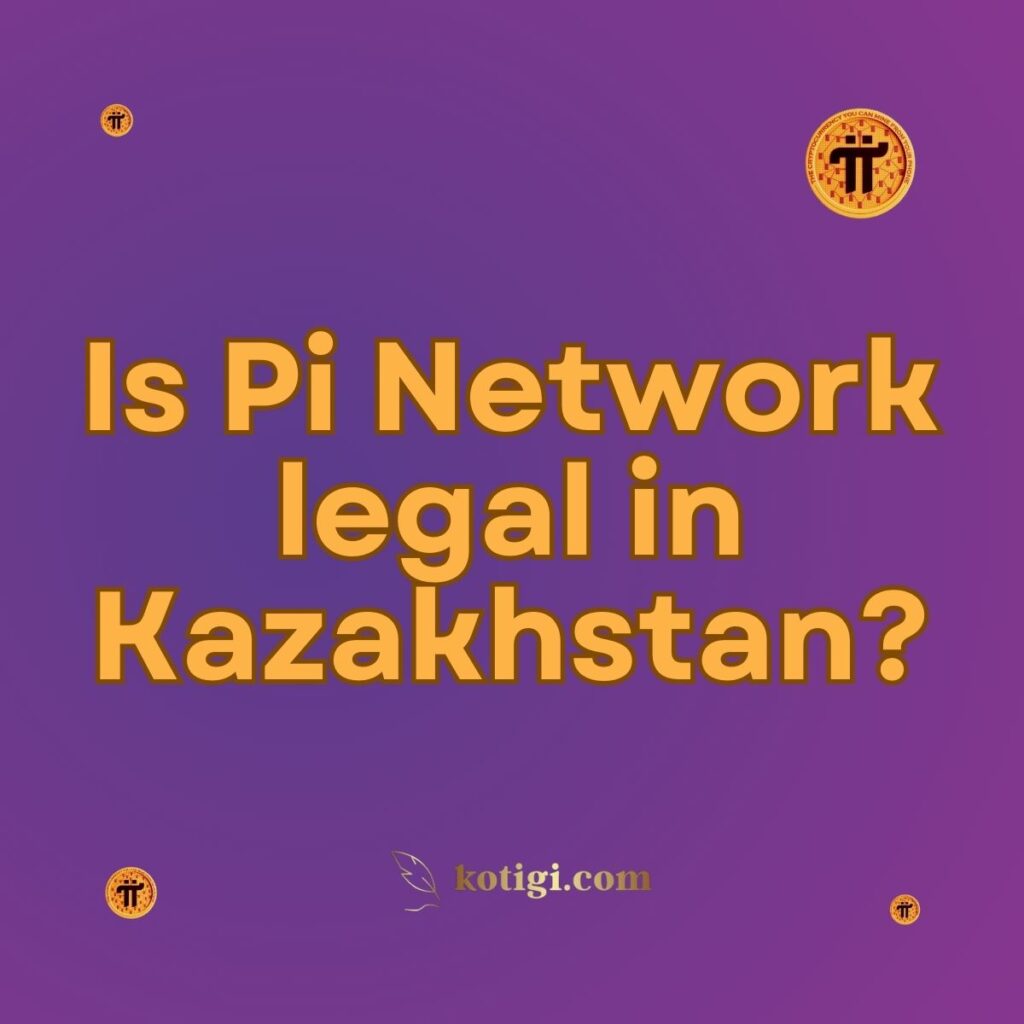
Is Pi Network legal in Kazakhstan?
Yes, Pi Network is legal in Kazakhstan. While the country has taken steps to regulate cryptocurrencies, there are no laws explicitly banning the use of Pi Network. However, users should remain aware of evolving regulations and compliance with local laws governing digital assets.
Introduction
Pi Network, a growing cryptocurrency platform that allows users to mine Pi tokens on their smartphones, has attracted interest from all over the world, including Kazakhstan. As more people seek to participate in this new form of decentralized currency, questions arise regarding its legality in various countries.
In this article, we examine the legal status of Pi Network in Kazakhstan, discuss the country’s approach to cryptocurrency regulations, and highlight the key considerations for Kazakh users who want to participate in the Pi ecosystem.
Cryptocurrency Regulation in Kazakhstan
Kazakhstan’s Approach to Digital Assets
Kazakhstan has been proactive in establishing a regulatory framework for digital assets, including cryptocurrencies. The government has shown interest in blockchain technology and has taken steps to regulate the mining and trading of cryptocurrencies. However, there are no specific laws banning the use of Pi Network or any other decentralized cryptocurrencies for personal use.
Central Bank’s Role in Regulation
The National Bank of Kazakhstan has expressed concerns over cryptocurrencies, particularly regarding their volatility and potential for financial crime. The bank has issued warnings about the risks of digital currencies but has not introduced an outright ban on their use. It primarily focuses on ensuring that cryptocurrency-related activities comply with anti-money laundering (AML) and combating the financing of terrorism (CFT) regulations.
National Legislation on Mining
Kazakhstan is known for its supportive stance on cryptocurrency mining, especially given its abundance of energy resources. Although Pi Network does not require the traditional, energy-intensive mining methods associated with Bitcoin, the government’s general openness to crypto mining benefits Pi users. There is no specific legislation addressing Pi Network’s mobile-based mining, which further indicates its legality.
Is Pi Network Subject to Regulation in Kazakhstan?
Pi Network’s Legal Status
Currently, Pi Network operates legally in Kazakhstan, as there are no specific regulations or bans targeting the platform. However, users should keep in mind that all cryptocurrency-related activities may fall under existing regulations concerning financial transactions, AML, and CFT.
Compliance with KYC Requirements
Pi Network enforces a Know Your Customer (KYC) process to ensure that users are verified and legitimate. This aligns with Kazakhstan’s AML and CFT laws, making Pi Network a compliant platform in terms of user verification and security. Kazakh users participating in Pi Network should ensure they complete the KYC process to comply with these regulations.
Opportunities and Risks for Pi Network Users in Kazakhstan
Government’s Pro-Blockchain Stance
Kazakhstan is positioning itself as a hub for blockchain technology, and this openness bodes well for Pi Network users. The country’s favorable stance toward crypto mining and blockchain development means that Pi Network users are operating in an environment that generally supports digital innovation.
Potential Regulatory Changes
While Pi Network is currently legal, Kazakh users should be aware that the regulatory landscape for cryptocurrencies is constantly evolving. Future regulations could impact how Pi Network operates in the country. It is crucial for users to stay informed about any changes in local cryptocurrency laws.
Tax Implications for Pi Network Users
Income Tax on Cryptocurrencies
Kazakhstan has not yet implemented specific tax regulations for cryptocurrencies like Pi Network, but as the market grows, tax authorities may introduce relevant legislation. Users should be prepared for the possibility of taxation on cryptocurrency income or transactions in the future.
Reporting and Compliance
Though there are no current tax laws specifically targeting Pi Network, users should maintain good records of their Pi holdings and any income generated from its use. When tax regulations are introduced, proper documentation will ensure compliance and avoid potential penalties.
Pi Network’s Global Legality and its Impact on Kazakhstan
International Legitimacy
Pi Network operates in many countries worldwide, and its mobile-based mining process does not have the same environmental concerns as traditional cryptocurrency mining. This reduces the likelihood of Pi Network facing restrictions in Kazakhstan due to energy concerns, making it more appealing to users who want to participate in cryptocurrency without contributing to large carbon footprints.
Cross-Border Cryptocurrency Regulations
Kazakh users should be cautious when engaging in international cryptocurrency transactions. Although Pi Network is legal in Kazakhstan, cross-border transactions involving cryptocurrencies may be subject to scrutiny by international regulators, especially in cases involving fiat currency conversion.
Conclusion
Pi Network is currently legal in Kazakhstan, and there are no laws specifically targeting the platform or its mobile mining model. Kazakhstan’s government has expressed support for blockchain and cryptocurrency mining, and while there are regulations concerning AML and CFT, Pi Network’s KYC process helps it comply with these standards. Users in Kazakhstan should stay informed about potential changes to cryptocurrency regulations and ensure compliance with local laws, particularly in areas like taxation and financial transactions.
As Pi Network continues to evolve and grow, it will be important for users to remain aware of how cryptocurrency regulations in Kazakhstan develop. Overall, Pi Network offers an accessible and legal way for Kazakh users to participate in the cryptocurrency space.
Key Takeaways
- Legality: Pi Network is legal in Kazakhstan, with no specific laws banning its use.
- Regulation: While Kazakhstan has a regulatory framework for cryptocurrencies, Pi Network complies with local laws by enforcing KYC procedures.
- Blockchain-Friendly Environment: Kazakhstan is generally supportive of blockchain technology and cryptocurrency mining, which benefits Pi Network users.
- Potential Taxation: Though not currently taxed, cryptocurrency income may be subject to future taxation in Kazakhstan.
- User Responsibility: Kazakh users should remain informed about evolving cryptocurrency regulations and ensure they comply with financial laws and reporting requirements.





